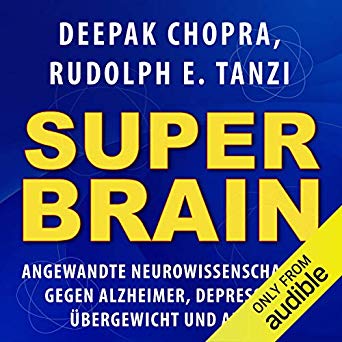

They explain that our brains are endlessly adaptable. Medical and spiritual guru Deepak Chopra and Harvard neurologist Ruldoph Tanzi share up-to-date research and time-tested spiritual wisdom to help you use your brain to its fullest potential. In Super Brain: Unleashing the Ex plosive Power of Your Mind to Maximize Health, Happiness, and Spiritual Well-Being you learn how to do exactly that. So imagine if you took advantage of the brain’s amazing ability to adapt and learn and helped reshape it to maximize its power? It’s constantly growing, learning, and building new pathways. And here’s the thing: your brain doesn’t have a limited amount of battery. They deal with all of the complexities of human life and barely even break a sweat. Their 100 billion neurons are responsible for everything from emotion and memories to keeping you alive. Our brains are one of the most complex biological creations on earth. But it is true that we are not always using all of our brain power. Though it is controversial in giving us an autonomy and control over our own health coming from our own mind/brain connection, as opposed to mainline medical science that sees physical causes as preceding our own mental autonomic causes.Listen to the audio of this summary with a free reading.fm account*:Īt some point in your life you’ve probably heard something along the lines of, “Did you know that we only use 10 percent of our brain power?” Or maybe you’ve seen click-bait articles saying something like, “Play this game and unlock the other 90 percent of your brain power!” It may come as no surprise that this idea is false and has no scientific backing. This book is great for the medical science connection, being written by two medical scientists this would be as expected. For more pure spiritual stuff, I would recommend Eckhart Tolle instead. The more speculative spiritual stuff is not so good to my mind, as I have read that kind of thing many times, it just seems a bit too generic to have much interest to me. The best parts though are where actual brain science is considered, including some of its shaky assumptions, and alternatives are proposed. Reinvigorates the philosophy of mind debate by putting it in a much larger setting of general well-being, and the influence we can have over our own health if we put our mind to. What I expected to gain from it however was more actual scientific knowledge, such as the function of dopamine and how it is produced, the effects and the potential causes, etc.It was still a thoroughly enjoyable and surprisingly pragmatic piece of scientific and spiritual literature. It is an important book if you wish to dramatically improve the standards of mental performance including your overall well being. Review 1: If anyone is interested in justifying the practice of religion and using philosophy, this book has provided scientific reasons to do so.


 0 kommentar(er)
0 kommentar(er)
